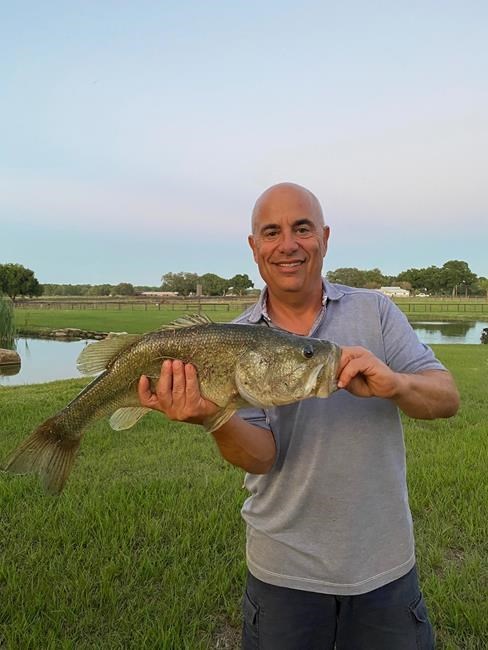For many, a break from work means grabbing a cup of coffee or tea. When Mark Casse needs to get away from it all, the veteran horse trainer reaches for a fishing rod.
Roughly a 60-metre (200 foot) walk from Casse's residence at his horse-training centre in Ocala, Fla., is a pond that a variety of fish — including trophy largemouth bass — call home.
"Sometimes I'll get up and fish for a bit just to get out and think about something else besides work," the Canadian Horse Racing Hall of Famer said in a recent telephone interview while gearing up for one of the busiest stretches on the sports calendar in the weeks ahead. "But we always put everything back.
"They're like our kids. We want to catch them and check on them but I don't want anything to happen to them so I put them back."
Casse, 59, a native of Indianapolis, is one of thoroughbred racing's most accomplished trainers. He has won two-thirds of the U.S. Triple Crown — the Preakness and Belmont Stakes — and five Breeders' Cup races.
Casse became a member of the National Museum of Racing Hall of Fame in the U.S. this year.
He's also been a dominant force in Canadian racing, having claimed all three legs of the Triple Crown — the Queen's Plate (twice), the Prince of Wales Stakes (four times) and Breeders' Stakes. Casse has also won the Woodbine Mile (twice) and been named the country's top trainer an unprecedented 11 times.
The pond located in front of the Casse residence is one of four on the property. At almost seven metres (20 feet) it's the deepest and therefore gives the fish in it the best chance to grow to maximum size.
And grow they do as Casse said there are largemouth bass in the pond that exceed 10 pounds. The Canadian record largemouth was a 10.43-pound fish caught in 1976 in Preston Lake, which is located roughly 40 kilometres north of Toronto.
By comparison, the Florida state record is 17.27 pounds (caught in 1986). However, the unofficial mark is 20.13 pounds, dating back to 1923.
The warmer weather in Florida is a big reason for the discrepancy as the southern climate presents fish with longer growth periods. But Florida-strain bass can be also very temperature sensitive and often are unable to survive very long in cold-water conditions.
The pond also contains peacock bass — a popular predatory freshwater fish native to South America — and panfish, which are smaller fish.
All three remaining ponds are about five to six feet deep. Two are connected by a stream with one of the bodies of water used to swim horses as all three are about five to six feet deep.
"If I catch something good in the other ponds, I usually move them to the (deeper) one to give them the best chance to grow," said Casse.
The monster largemouth bass are the rewards of Casse's stocking program.
"At first you go with these little mosquito minnows," he said. "You put those in, then you get these tiny panfish and then you put them in and they eat the minnows.
"Then we put in 100 bass in that were maybe four inches long and that starts the process."
The deepest pond is close to a baseball diamond that's also located on the property as Colby Casse, the trainer's 17-year-old son, is an accomplished player. Not surprisingly, the senior Casse sometimes has to fish out baseballs prior to or while he's dipping a line.
"Left-handed hitters, if they pull, can put it in because it's only about 250 feet down the first-base line (to the pond)," Casse said. "Centre field is about 400 feet and if you hit it to left field it's about 300 feet.
"We find a lot (of baseballs near the pond). When we have baseball practice we have a big pool skimmer, and if they hit it into the water they get them out."
With the pond being on private property, Casse can control the fishing pressure it faces. Well, to a point.
"He hasn't been around in a few months but we had an eagle that would come," Casse said. "One day he had a three-pound bass, I was not happy about that.
"It was beautiful to see the eagle but he was out munching on a bass and I was like,'You've got to be kidding me.' But I haven't seen him lately."
Casse said each year two geese arrive to lay their eggs but, sadly, the odds are continually stacked against the young birds.
"It seems the babies never live," Casse said. "I guess the bass might get some but we have a lot of hawks and I think they get them.
"We've tried to catch the babies so maybe we could get them bigger before they get out but we've been unable to do that."
This report By The Canadian Press was first published Aug. 24, 2020.
Dan Ralph, The Canadian Press




